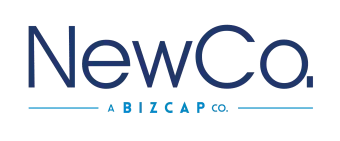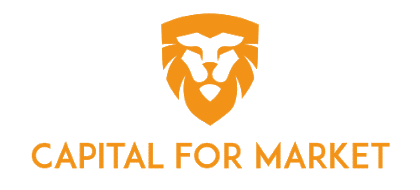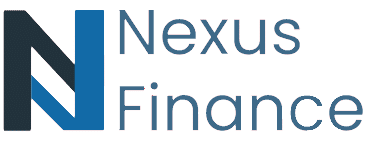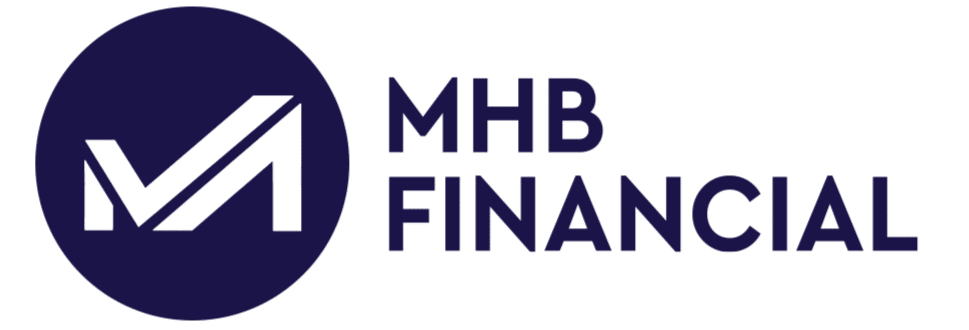Compare Lenders
Discover Popular Financial Services
Introduction to Business Loans
The Canada Small Business Financing Program (CSBFP) is a government-backed initiative designed to help small businesses in Canada access the financing they need for various business purposes. Whether you're looking to purchase or improve land, buildings, or equipment, this program can provide the necessary funds. Available to small businesses or start-ups operating in Canada with gross annual revenues of $10 million or less, the CSBFP offers financing for eligible purchases such as leasehold improvements, intangible assets, and working capital costs. With a maximum loan amount of $1.15 million, this program is an excellent option for small businesses looking to expand or improve their operations.
How to get a business loan in Canada?
Getting a business loan in Canada requires a little bit of preparation, and a lot of careful thought. But before you can start worrying about business loan rates or the different types of Canada small business loans, you need to gather together some paperwork. This includes:
- Proof of business ownership/incorporation documents, which crucially must show the company is based in Canada
- Financial documents, such as financial statements, cash flow statements and/or tax returns
- A well-drafted business plan that shows the intended usage of the loan funds
Once you have these items in hand, you will be prepared for the application process, and you will have a better understanding of what type of business loan will best suit your business's needs. You can then choose a business loan lender that offers this type of business loan, at a competitive rate, and can complete an application form with the help of financial institutions. Seeking professional business advice can also be beneficial in ensuring your application is strong and meets all necessary criteria.
Eligibility Criteria
To qualify for the Canada Small Business Financing Program, businesses must meet specific criteria. Firstly, the business must be a small business or start-up operating in Canada with gross annual revenues of $10 million or less. Additionally, the program is not available to farming businesses, which may instead be eligible for a similar program under the Canadian Agricultural Loans Act Program. The CSBFP is designed to support small businesses in Canada, and eligibility is determined by the business's annual revenues and type of business. Businesses interested in applying for the program should review the full details of the eligibility criteria to ensure they meet the requirements.
Where to get business loans in Canada?
There are a great many business loan lenders in Canada, including:
- Banks and credit unions
- Alternative financing companies
- Online business loan lenders
- Private business loan lenders
The Government of Canada also plays a significant role in facilitating loans through programs like the Canada Small Business Financing Program. Each type of business loan lender has their own pros and cons, so choosing the best lender for your business will depend on your priorities and situation. For example, a more traditional financial institution (like a bank) may have terms that your small business cannot adhere to, whilst an alternative lender may have more flexible terms. A private business loan lender may require more research and time to secure, but can be significantly more lenient in its eligibility criteria. Online business loan lenders have fast turnaround times, but vetting for reputability is key. There are options for businesses in all situations.
What are the types of business loans you can get in Canada?
Canada is home to over 1.2 million businesses, and almost all of them are eligible for business loans of one type or another, including:
- Term loans
- Short term loans
- Online loans
- Equipment loans
- Invoice financing loans
- Bad credit business loans
- Home business loans
- Merchant cash advance loans
- Working capital loans
- Mortgages
- Business lines of credit
- Business credit cards
- Government loans
To qualify, businesses must be operating for profit with gross annual revenues of $10 million or less. Each one of these business loans can differ in terms of registration fee, who is eligible for loan approval, repayment options, term, source, and so on. These loans can be used for the purchase or improvement of assets such as land, buildings, and equipment. So it's important to compare each to find the right business loan in Canada for you.
Government Assistance for Small Businesses
Some small business loans in Canada come from the government. This is mainly run through the Canada Small Business Financing Program. This program does not mean the government itself is the entity offering the loan; rather, it helps other business loan lenders, such as your bank, provide business loans to those it might not otherwise be able to, by sharing the risk with them. Programs like the Canada Small Business Financing Program play a crucial role in helping small businesses secure the necessary funds. Both term loans and lines of credit are available through the Canada Small Business Financing Program, and most small businesses in Canada are eligible for funding, for a variety of purposes, including equipment purchase, existing leasehold improvements, moving from leased property to purchasing property, securing intangible assets, to cover working expenses, and so on. For more information on the Canada Small Business Financing Program, see here. It's important to consider related costs such as downpayments and renovations when applying for these loans.
How much money can I get from a business loan in Canada?
Businesses come in all shapes and sizes, and as a result, business loans in Canada do too. Whether you're looking to secure a few hundred dollars or aiming for a more substantial business loan of $500,000 or beyond, you will have multiple Canada business loans to choose from. Just bear in mind that larger loan amounts usually require a more in-depth application and qualification process. While small businesses can apply for these loans, the farming industry has specific financial programs tailored to its needs.
What can business loans be used for in Canada?
Business loans in Canada are available for all manner of purpose, including:
- Financing a small business purchase
- Working capital costs
- Buying inventory
- Buying new or used equipment
- Hiring employees
- Executing marketing plans
- Improving leased property
- For renovations
- Securing real property or intangible assets
- Investing in innovation
- For product improvement or development
- For expansion purposes
- To cover emergency or short-term expenses, such as rent and payroll during seasonal downtimes
Loans can also be used to pay for everyday operating expenses, ensuring smooth cash flow management.
Use-Specific and Flexible Business Loans
It's worth noting that most Canada small business loans can be used for a variety of purposes. Here's an example: let's say a farming business is looking for a small business loan. The business may have a multitude of financial needs, such as employee-related expenses, machinery upgrades, working capital needs, and so on. Many of the business loans available in Canada can be used for all of these purposes; in order to be eligible for a small business loan, the applicant simply has to specify how the funds will be used. In this way, installment loans, term loans, short term loans, working capital loans and business lines of credit are all multi-purpose. When considering these loans, it's important to account for related costs such as downpayments and renovations. There are however some business loans that are use-specific; for example, a commercial mortgage must be used for real estate costs. An equipment loan must be used for the equipment in question. A vehicle loan must be used for a business vehicle - and so on.
What is a good interest rate on a business loan in Canada?
Business loans in Canada are available with interest rates as low as 6% and as high as 50%+. The average interest rate on a business loan in Canada is around 7-10% for a standard term loan. The business loan interest rate you qualify for depends on a number of factors, as discussed below. To make sure your Canada small business loan is as affordable as possible, it's best to shop around to find both the best type of loan and the best business loan rate for your situation. Don't be discouraged if you're struggling to find a competitive rate, as there are options (discussed below) to help bring rates down.
What factors affect business loan interest rates in Canada?
There are a variety of factors that affect business loan interest rates in Canada; they fall into three categories, relating to: the borrower, the lender, and the loan type.
Borrower-Specific Factors Affecting Business Loan Interest Rates
- Availability and value of assets that can be used as collateral
- Monthly revenue
- Working capital costs
- Cash flow projections
- Credit history
- Length of time in business
- Amount of existing business debts
- Intended use of funds and how they will impact the business
Lender-Specific Factors Affecting Business Loan Interest Rates
- Type of lender (e.g. alternative, online, traditional)
- Eligibility criteria
- Level of service provided
Loan-Specific Factors Affecting Business Loan Interest Rates
- Loan type
- Loan term
- Repayment schedule
- Loan fees
Fees Associated with Loans
When participating in the Canada Small Business Financing Program, businesses should be aware of the associated fees. The program charges a registration fee of 2% on the total amount loaned for term loans and lines of credit. This fee must be paid by the borrower to the lender and can be financed as part of the loan. In addition to the registration fee, interest rates for term loans are determined by the financial institution and may be either floating or fixed. For lines of credit, the interest rates are set at the lender's prime lending rate plus 5%. It's crucial for businesses to carefully review these fees to understand the total cost of borrowing.
Loan Terms and Conditions
The Canada Small Business Financing Program offers loan terms and conditions that are designed to support small businesses in Canada. The maximum loan amount is $1.15 million, and the loan can be used for various business purposes, including purchasing or improving land, buildings, and equipment. Additionally, the loan can be used to finance intangible assets and working capital costs. The amortization period for the loan is up to 10 years for equipment and leasehold improvements, and up to 15 years for real property improvements. Businesses should carefully review the loan terms and conditions to ensure they meet their business needs.
How do I find the best business loan rates in Canada?
There are some simple ways to ensure you get the best possible deal on your Canada business loan:
- Consider the loan amount. Larger loan amounts can sometimes secure lower interest rates, due to economies of scale.
- Consider the loan and lender type. Different types of business loans, and different business loan lenders, have different rates.
- Offer collateral. You can often get a lower rate by putting up a business asset (like real estate) as security.
- Shop around.
Lastly, don't ignore other loan terms in favour of interest rate considerations. Although interest rates are the primary determinant in your monthly loan cost, repayment terms and fees are just as important when it comes to the loan's overall cost. The best loan deal, for you, may not be the same as the lowest monthly interest rate.
What factors to consider when comparing business loan lenders in Canada?
When looking at different business loan lenders in Canada, it is important to consider a broad list of items before committing to one provider. While it is tempting to simply take the offer with the best interest rate, a business loan lender should be viewed through the lens of a business partner. The following should be considered, weighed, and decided upon:
- Each business loan lender's policy frameworks (application processes, information requirements, and ALL fees including registration fee)
- Speed of services (while some business loan lenders will process a business loan application in just a few days, others may take weeks)
- Accessibility of services (e.g. online, in-person, telephone, opening hours, etc.)
- Ancillary services offered (e.g. transaction banking, regular payments solutions, insurance, etc.)
- Business loan lender's reputation (prior customer reviews, length of time in business, transparency of terms, etc.)
- Term of the loans offered
- Availability of variable or fixed interest rates (possibly adjusted to real rates to account for inflation)
- Funding amounts offered and how they match with the capital that is needed
- Types of business loan offered and suitability for your business's needs
All of this taken together will allow you to find both the right business loan lender, and the right business loan, for your needs.
Applying for a Loan
To apply for a loan under the Canada Small Business Financing Program, businesses should start by discussing their business needs with a financial officer at a bank, caisse populaire, or credit union in Canada. The financial officer will review the business proposal and make a decision on the loan application. Once the decision is made to provide financing, the financial institution will disburse the funds and register the loan with Innovation, Science and Economic Development Canada (ISED). It's important for businesses to have a solid business plan and meet the eligibility criteria before applying for a loan. With the right financing, small businesses in Canada can access the funds they need to grow and succeed.
How do I qualify for a business loan in Canada?
Traditional small business loans are relatively easy to obtain as long as a business has been operational for at least a year and generates at least $10,000 in monthly revenue. To apply for a business loan, business owners need simply to complete an application and provide access to their business's registration details, financial statements, and credit profile. And while size is not a direct consideration, lenders will want to see a consistent history of revenue generation, so they can feel confident in a business's ability to repay the loan. It is worth noting that newer, smaller and other businesses in Canada can still receive funding even if they don't meet the above criteria; alternative business loan lenders, online business loan lenders, and specialized loan types, are very useful for businesses in all manner of situations.
Explore more
Similar products
- bad credit business loans
- coffee shop business loans
- expansion business loans
- auto shop business loans
- food grocery store business loans
- home business loans
- invoice factoring
- medical dental practice business loans
- mid market financing
- point of sale financing
- restaurant business loans
- salon spa business loans
- business credit lines
- business loan application keep
- clothing store business loans
- business loans usa
- emergency business loans
- gym fitness club business loans
- inventory business loans
- marketing business loans
- merchant cash advance business loans
- ecommerce business loans
- renovation business loans
- retail store business loans
- working capital loans
Why Choose Smarter Loans?

Access to Over 50 Lenders in One Place

Transparency in Rates & Terms

100% Free to Use

Apply Once & Get Multiple Offers

Save Time & Money

Expert Tips and Advice




























